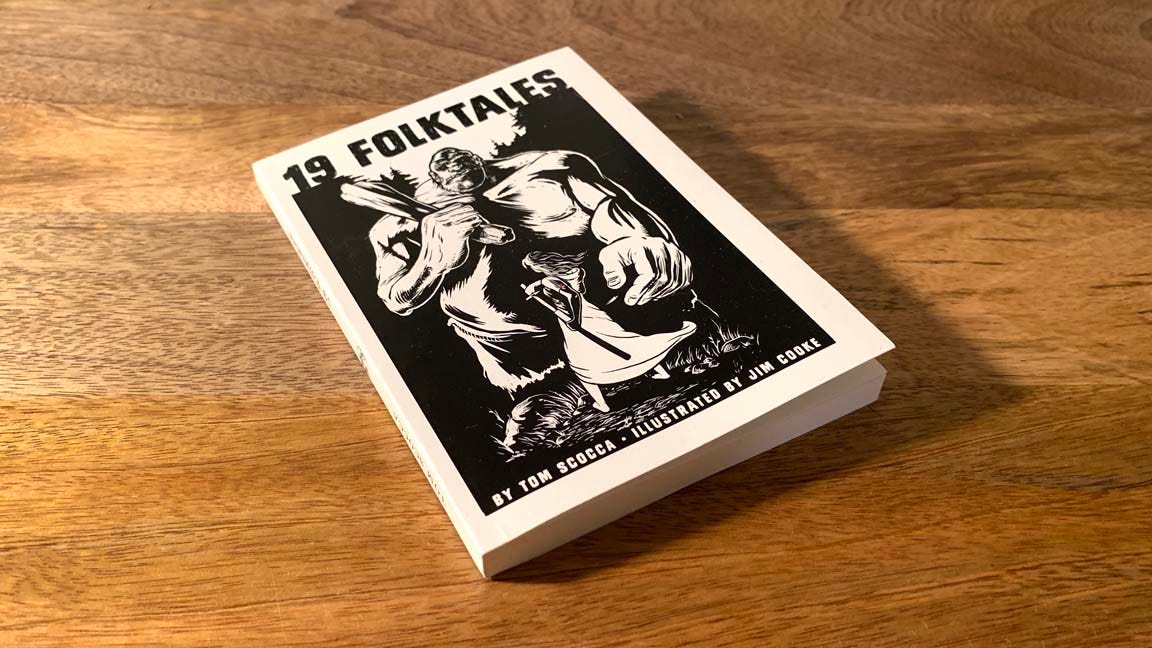INDIGNITY VOL. 3, NO. 109: Dissenting from the court of public opinion.
THE WORST THING WE READ™

BUSINESS DEP'T.
HELLO! IT'S A great time to become a paid subscriber to Indignity. Regular readers of Indignity may begin to encounter more opportunities to do so, via buttons and subscription offers, than before, as we have engaged the feature known as "Substack Boost," in an attempt to boost the revenue and circulation performance of our Substack.
Substack Boost is one of the tools and strategies for increasing newsletter performance that Substack has laid out in a blog post titled "How to convert subscribers from free to paid." Our platform also advises us to identify and specify why a person would pay for our writing. For instance:
- Does it provide Skill Development?
(Yes, in the skill of making archaic sandwiches.) - Does it support a Fandom?
(Do reverse fandoms of opinion columnists count?) - Does it offer Emotional Support?
(Send your letters to The Sophist!)
Etc.!
The post also encourages newsletters to create a Manifesto Post. We will try to come up with one.
In the meantime, our best expression of our deal here at Indignity is: we write these newsletters, for you, the readers. We pay the mortgage and utility bills, with money.
The more money we get from you, the readers, the better able we are to pay the bills, which allows us to keep on writing these newsletters.
Thank you!

THE WORST THING WE READ™
How Disagreeable Will the Supreme Court Allow Itself to Be?
AT THE END of the Supreme Court's decision in Biden v. Nebraska, in which the court's 6–3 Republican majority struck down the Biden administration's student-loan relief program, Chief Justice John Roberts tacked on an extra bit of pleading:
It has become a disturbing feature of some recent opinions to criticize the decisions with which they disagree as going beyond the proper role of the judiciary. Today, we have concluded that an instrumentality created by Missouri, governed by Missouri, and answerable to Missouri is indeed part of Missouri; that the words “waive or modify” do not mean “completely rewrite”; and that our precedent—old and new—requires that Congress speak clearly before a Department Secretary can unilaterally alter large sections of the American economy. We have employed the traditional tools of judicial decisionmaking in doing so. Reasonable minds may disagree with our analysis—in fact, at least three do. See post, (KAGAN, J., dissenting). We do not mistake this plainly heartfelt disagreement for disparagement. It is important that the public not be misled either. Any such misperception would be harmful to this institution and our country.
What might have caused the public to be misled about the Supreme Court? In her dissent on Biden v. Nebraska, co-signed by the other two non-Republican justices, Elena Kagan wrote that the court had violated its own basic principles about standing by even hearing the lawsuit, which originated with "six States that have no personal stake in the Secretary's loan forgiveness plan," who are "classic ideological plaintiffs." In agreeing to rule on the complaint, she wrote, the court "forgets its proper role," "acts as though it is an arbiter of political and policy disputes," and "substitutes itself for Congress and the Executive Branch in making national policy about student-loan forgiveness."
"And that means the Court, by deciding this case, exercises authority it does not have," Kagan wrote. "It violates the Constitution."
Kagan went on to write that "the majority reaches out to decide a matter it has no business deciding" and that it "blows through a constitutional guardrail intended to keep courts acting like courts." The opinion, she wrote, "refuses to acknowledge the plain words" of the law it was interpreting. The majority "refuses to respect the full scope of the delegations that Congress makes to the Executive Branch," she wrote, and its intervention "is a danger to a democratic order."
Yet after all that—after spelling out her belief that the Supreme Court had acted without principle to seize power that didn't belong to it, violating the Constitution and threatening democracy—Kagan endorsed Roberts’ interpretation of her dissent:
In saying so, and saying so strongly, I do not at all “disparage[ ]” those who disagree. The majority is right to make that point, as well as to say that “[r]easonable minds” are found on both sides of this case. And there is surely nothing personal in the dispute here.
What's the purpose of a dissent? As affirmative action, student loan relief, and public accommodations for gay weddings were shoveled into the incinerator where abortion rights and most of the Voting Rights Act had already gone, the issuing of minority opinions seemed an unbearably futile gesture. There is no persuasion going on at the Supreme Court, nor is there any meaningful law to have legal arguments about. The six Republican justices—or five, in the cases where Roberts is embarrassed by the other ones' manners—will jam through whatever results they want.
Roberts' sad, smarmy little note, though, made the case that the dissents do still matter. It evidently pained the chief justice to see it set down in black and white—not by some carping outside critic, but by a fellow robe-wearer, in official Supreme Court opinion formatting—that he and his wing of the court are liars and opportunists, greedily seizing power under the flimsiest of pretexts. The man who sold himself as a mere, modest umpire, reading the strike zone of the law, doesn't like to be depicted as someone swinging a baseball bat on behalf of the Republican Party's policy agenda. It is harmful to the institution.
But Kagan's note on that note affirmed the pointlessness of it all. On the only issue that mattered—the metaphysical integrity of the Supreme Court as an institution, as opposed to the observable lack of integrity of what the Supreme Court does—she joined the chief justice. After condemning the majority's abuse of the plain text of the law, she signed on to the abuse of her own plain text. The Supreme Court is violating the constitution. It is a danger to democracy. And the public must never get a negative impression of it.

WEATHER REVIEWS

New York City, July 2, 2023
★★★ Dull gray extended from the morning almost into midday, then sun shone white on the leaves. People bustled up and down the sidewalk, toting bags, going places. The air was stupefying. Small pale butterflies flitted on the edge of the Park, one weaving among long, upthrust horns of flowers. Two turtles stood motionless on a rock in the Pool, with one frog squatting still on the watery edge of the mud nearby. Another frog's booming, grinding call carried from somewhere over the water. A black-crowned night heron turned its head from side to side, red eyes scanning, then shivered its wings and fluffed itself and settled down again. A man walked by shirtless, with a strong sunburn on the line where his shirt collar had been. On the radar map that had been clear a few minutes earlier, a clot of orange was boiling up at the foot of the island. Thick haze clung to the lawn at the top of the Great Hill. The northern third of the sky was blue and white, and the rest was an ivory glare. Moments later, gray was overtaking the glare. Thunder sounded once, and possibly again, sandwiched around the rattle of a shopping cart full of scavenged cans. A blue jay started screaming as the real thunder came, a loud growl and then a sharp, nearby blast.

New York City, July 4, 2023
★★★ First the light and then the radar map made it seem as if rain had to be imminent. An air conditioner dripped from a higher apartment onto the sleeve of the broken air conditioner. Weed smell came in on the gummy air. At last lightning flashed and a crack of thunder sent the cat scrambling away from the living room, claws out. Umbrellas appeared as the rain smoothly strengthened till it broke through the tree canopy. A man in a t-shirt hurried down the block and across the avenue to duck into an SUV and drive off. A full splashing downpour wetted down the sheltered spot where the vehicle had been. The rain faded back out, and around lunchtime some sun found its way through a still-gray sky. A few fireworks went off. Starlings chirred on the lawn inside Central Park. Crumpled cans lay in the duckweed by the shore of the Pool. Beanbags thumped from a game of cornhole. New little strands of Virginia creeper stretched along and down the low wire fence. A duck's feet showed brilliant orange in the otherwise dim green and gray view across the water. One brilliant white tongue of cloud stretched out in a gap of blue in the otherwise stubborn gray.

EASY LISTENING DEP’T.
INDIGNITY MORNING PODCAST
Indignity Morning Podcast No. 100: Our own little apocalypse.
Tom Scocca • Jul 5, 2023

Listen now (5 min) | The Indignity Morning Podcast is also available via the Apple and Spotify platforms.
Read full story →

SANDWICH RECIPES DEP’T.
WE PRESENT INSTRUCTIONS for the assembly of select sandwiches from Nine Hundred Successful Recipes, by Lulu Thompson Silvernail, Domestic Science Teacher for The Southwestern Milling Company, Inc. Published in 1923, this book is in the Public Domain and available at archive.org for the delectation of all.
DELICIOUS LIVER SANDWICHES.
1 cup ground cooked calf’s liver
3 hard cooked eggs
1/2 cup finely chopped onion
1/4 teaspoon white pepper
1 teaspoon salt
1/2 cup thick salad dressing
Have liver boiled and run through a chopper. Either run onion through chopper or cut fine. Mix all ingredients together and spread on thin slices of buttered bread, placing a crisp lettuce leaf between each two slices.
If you decide to prepare and attempt to enjoy a sandwich inspired by this offering, kindly send a picture to us at indignity@indignity.net.

MARKETING DEP'T.

Thanks for reading INDIGNITY, a general-interest publication for a discerning and self-selected audience. We depend on your support!





